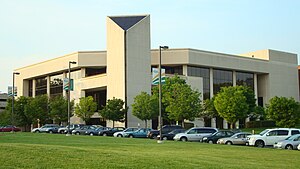George Solomon visit
March 1st, 2011 March 1st, 2011 Posted in Guest Speakers2 Comments
George Solomon, former sports editor at “The Washington Post” from 1975-2003 and ESPN’s first ombudsman, visited our class on Tuesday, March 1 to talk about how to break into the field of journalism.
The biggest thing Solomon talked about was that you have to read good writing if you want to get better at writing. By reading what other great sports writers have written, you pick up on what good writing is. And just reading more, in general, gets you more well-versed and more aware of what is going on in the world.
Another tip from Solomon was that when you’re trying to get a career in sports journalism you need to get published as much as you can, whether it’s on the Internet or in print. Journalism is one of those fields where you can’t get better without experience and the more you write, the better you get. And getting published as much as possible helps you gather a reel to show potential employers.
Solomon also mentioned that you need to learn how to break stories. That doesn’t mean you sacrifice your quality of reporting to be first, but if you’re consistently breaking news, people will notice and you will gain credibility.
The last bit of advice he provided was to stretch yourself. Be willing to work nights, weekends and long hours. The more you show you’re willing to work hard, the more you will be noticed and the opportunities you will have.






